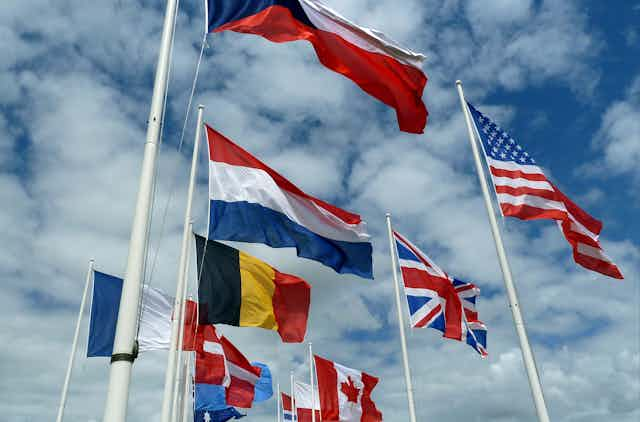The world economy is fragmenting. We have seen the election of a crude mercantilist president in the US, the Brexit vote in the UK, protracted pain in the euro zone and the slowdown of growth in China. The immediate challenge facing the global economy is a lack of growth; a challenge exacerbated by the absence of policy coordination.
In these interesting and difficult times, around 3,000 world leaders are meeting to address the plight of the poor and the disadvantaged by gathering in the reassuringly expensive Swiss ski-resort of Davos for the World Economic Forum.
Their task is to address four long-term challenges that face the world economy; challenges which require deep international cooperation just when the prospect seems uncomfortably out of reach.
Climate control
First, the environment: the scientific consensus is that a global warming of 2°C creates a high risk of catastrophic climate change. Yet even if each country meets the plans agreed at the Paris Climate Conference in December 2015, warming is projected to reach 2.7°C by 2100. Of particular concern is access to water. Around 2.7 billion people suffer from water shortages for at least a month each year.

The portents for the environment are not good. President-elect Trump has rowed back a little on his stance that climate change might be a hoax, but has still filled his new Washington with climate change sceptics and he wants to pull the US out of the Paris Climate Agreement.
We also have to acknowledge that the world is getting older – in part, a reflection of economic growth over the past two centuries. This demographic shift creates challenges for both governments and businesses. First, it raises the “dependency ratio” – the share of the population not in the labour force relative to the share in the labour force. This puts pressure on those in work to provide for others.
Second, it increases the pressure on pensions and health care. The King’s Fund estimates that healthcare will comprise about a quarter of the US economy by 2040.

Many countries are going to have to grapple with how to provide for the elderly – an especially tough challenge for those who want to reduce the role of the state. Letting people die may be the de facto solution adopted in the US if Trump repeals the Affordable Care Act.
The rise of the machines
Since the industrial revolution, new technology has generated economic growth which both destroyed and created jobs. But is this time different? Recently, the deployment of robots has accelerated rapidly, creating the potential for future productivity growth. But why employ low and semi-skilled workers if you can use a machine that will be a much cheaper alternative in the long-run?
It is estimated that 47% of the US workforce is at risk of losing their jobs because of automation. Trump, the self-annointed “greatest job producer God has ever created”, will need divine intervention to bring back enough jobs from overseas to make up for the impact of technology.
The risks are even greater for the newly industrialised countries – it is estimated that 77% of the Chinese workforce and 69% of India’s workforce are threatened by automation. New jobs will be created, but will they be of sufficient scale to compensate for those that are destroyed? While many workers will lose their jobs, the big winners will be those that profit from owning machines and this will further increase inequality.

It is no shock, then, that the WEF’s annual global risks report identifies rising income and wealth inequalities as threats to social stability.
Global capitalism unleashed has benefited the few while the majority have been left behind. As in the past, inequality and marginalisation have led to the rise of populism with strong strands of xenophobia and racism. This is a not a new phenomenon – similar trends developed in the 1930s – with catastrophic consequences.
Global challenges need global responses, but fractures are emerging in the world economy. Major countries are lurching towards protectionism and isolationism. And we may not even have yet reached “peak populism” with the French presidential election on the horizon. Probably the best we can hope for is a one term President in the US, the rapid decline of post-truth politics and an eventual escape from the policy sewer. Only then, will there be the opportunity to forge the effective global cooperation required if we are to face the challenges which demand our attention right here and now.
This piece has been published in cooperation with the World Economic Forum to coincide with its annual meeting in Davos, Switzerland. You can read more here.

